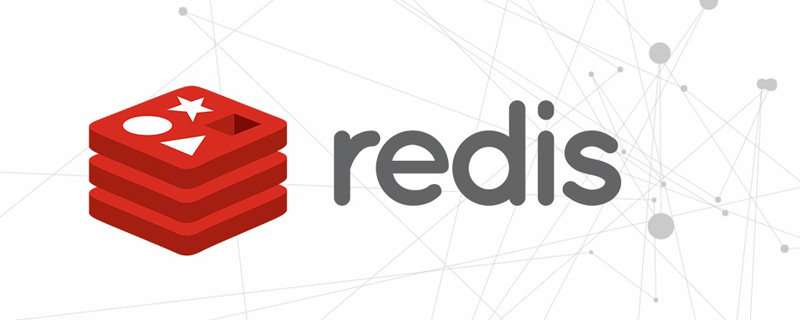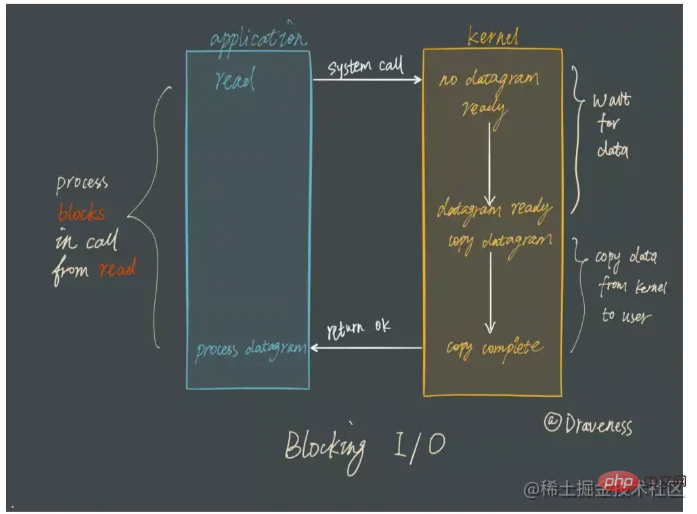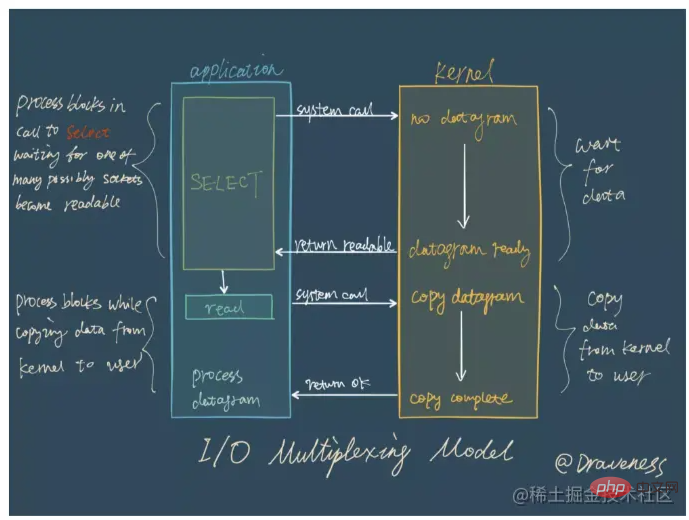A brief analysis of why Redis is fast? Where are you soon?
Why is Redis fast? Where is Redis? The following article will help you analyze the reasons why Redis is so fast. I hope it will be helpful to you!

Redis is a NoSQL database based on key-value pairs. The Value of Redis can be composed of String, hash, list, set, zset, Bitmaps, HyperLogLog It consists of a variety of data structures and algorithms. Redis also provides key expiration, publish and subscribe, transactions, Lua scripts, sentinels, Cluster and other functions. [Related recommendations: Redis Video Tutorial]
Redis executes commands very quickly, and according to the official performance, it can reach 10w qps. So this article mainly introduces where Redis is fast, mainly including the following points:
1. Development language
Now we all use high-level languages To program, such as Java, python, etc. You may think that C language is very old, but it is really useful. After all, the Unix system is implemented in C, so C language is a language that is very close to the operating system. Redis is developed in C language, so the execution will be faster.
In addition, if college students learn C well, it will help you better understand computer operating systems. Don't think that after learning a high-level language, you don't have to pay attention to the bottom layer. The debt you owe will always have to be repaid. Here is a more difficult book to recommend, "In-depth Understanding of Computing Systems".
2. Pure memory access
Redis places all data in memory. Non-data synchronization works normally and does not need to be retrieved from disk. Reading data, 0 IO times. The memory response time is about 100 nanoseconds, which is an important basis for the fast speed of Redis. Let’s take a look at the speed of the CPU first:

Take my computer as an example, the main frequency is 3.1G, which means it can execute 3.1*10^9 instructions per second. So the CPU sees the world very, very slowly, the memory is a hundred times slower than it, and the disk is a million times slower than it. Do you think it is faster or not?
I borrowed a picture from "In-depth Understanding of Computer Systems", which shows a typical memory hierarchy. At the L0 layer, the CPU can access it in one clock cycle, and the SRAM-based cache is renewed. They can be accessed in a few CPU clock cycles, and then DRAM-based main memory, which can be accessed in tens to hundreds of clock cycles.

3. Single thread
First, single-thread simplified algorithm implementation, concurrent data Structural implementation is not only difficult but also cumbersome to test. Second, a single thread avoids the consumption caused by thread switching and locking and releasing locks. For server-side development, locks and thread switching are usually performance killers. Of course, single threading will also have its shortcomings, which is also Redis's nightmare: blocking. If the execution of a command is too long, it will cause other commands to be blocked, which is very fatal for Redis, so Redis is a database for fast execution scenarios.
In addition to Redis, Node.js is also single-threaded, and Nginx is also single-threaded, but they are both models of high-performance servers.
4. Non-blocking multi-channel I/O multiplexing mechanism
Before this, let me talk about the traditional blocking I/O How it works: When using read or write to read or write a file descriptor (File Descriptor FD), if the data is not received, the thread will be suspended until the data is received.
Although the blocking model is easy to understand, it will not be used when multiple client tasks need to be processed.

#I/O multiplexing actually means that the management of multiple connections can be in the same process. Multi-channel refers to network connections, multiplexing is just the same thread. In network services, the role of I/O multiplexing is to notify the business code of multiple connection events at one time. The processing method is determined by the business code.
In the I/O multiplexing model, the most important function call is the I/O multiplexing function. This method can monitor the reading and writing of multiple file descriptors (fd) at the same time. When some of the fds are readable/writable, this method will return the number of readable/writable fds.

Redis uses epoll as the implementation of I/O multiplexing technology, and Redis's own event processing model converts epoll's read, write, close, etc. events without wasting too much time on network I/O. Realize monitoring of multiple FD reads and writes to improve performance.
Let’s give a vivid example. For example, a tcp server handles 20 client sockets.
A plan: Sequential processing. If the first socket is slow in reading data due to the network card, everything will be messed up after it is blocked.
Plan B: Create a clone sub-process for each socket request. Not to mention that each process consumes a large amount of system resources. The process switching alone is enough for the operating system to be tiring.
C scheme (I/O multiplexing model, epoll): Register the fd corresponding to the user socket into epoll (actually what is passed between the server and the operating system is not the fd of the socket but the data structure of fd_set) , and then epoll only tells which sockets need to be read/written, and only needs to process those active and changing socket fds.
In this way, the entire process will only block when epoll is called, and sending and receiving customer messages will not block.
For more programming-related knowledge, please visit: Introduction to Programming! !
The above is the detailed content of A brief analysis of why Redis is fast? Where are you soon?. For more information, please follow other related articles on the PHP Chinese website!

Hot AI Tools

Undresser.AI Undress
AI-powered app for creating realistic nude photos

AI Clothes Remover
Online AI tool for removing clothes from photos.

Undress AI Tool
Undress images for free

Clothoff.io
AI clothes remover

AI Hentai Generator
Generate AI Hentai for free.

Hot Article

Hot Tools

Notepad++7.3.1
Easy-to-use and free code editor

SublimeText3 Chinese version
Chinese version, very easy to use

Zend Studio 13.0.1
Powerful PHP integrated development environment

Dreamweaver CS6
Visual web development tools

SublimeText3 Mac version
God-level code editing software (SublimeText3)

Hot Topics
 Solution to 0x80242008 error when installing Windows 11 10.0.22000.100
May 08, 2024 pm 03:50 PM
Solution to 0x80242008 error when installing Windows 11 10.0.22000.100
May 08, 2024 pm 03:50 PM
1. Start the [Start] menu, enter [cmd], right-click [Command Prompt], and select Run as [Administrator]. 2. Enter the following commands in sequence (copy and paste carefully): SCconfigwuauservstart=auto, press Enter SCconfigbitsstart=auto, press Enter SCconfigcryptsvcstart=auto, press Enter SCconfigtrustedinstallerstart=auto, press Enter SCconfigwuauservtype=share, press Enter netstopwuauserv , press enter netstopcryptS
 Golang API caching strategy and optimization
May 07, 2024 pm 02:12 PM
Golang API caching strategy and optimization
May 07, 2024 pm 02:12 PM
The caching strategy in GolangAPI can improve performance and reduce server load. Commonly used strategies are: LRU, LFU, FIFO and TTL. Optimization techniques include selecting appropriate cache storage, hierarchical caching, invalidation management, and monitoring and tuning. In the practical case, the LRU cache is used to optimize the API for obtaining user information from the database. The data can be quickly retrieved from the cache. Otherwise, the cache can be updated after obtaining it from the database.
 Caching mechanism and application practice in PHP development
May 09, 2024 pm 01:30 PM
Caching mechanism and application practice in PHP development
May 09, 2024 pm 01:30 PM
In PHP development, the caching mechanism improves performance by temporarily storing frequently accessed data in memory or disk, thereby reducing the number of database accesses. Cache types mainly include memory, file and database cache. Caching can be implemented in PHP using built-in functions or third-party libraries, such as cache_get() and Memcache. Common practical applications include caching database query results to optimize query performance and caching page output to speed up rendering. The caching mechanism effectively improves website response speed, enhances user experience and reduces server load.
 How to upgrade Win11 English 21996 to Simplified Chinese 22000_How to upgrade Win11 English 21996 to Simplified Chinese 22000
May 08, 2024 pm 05:10 PM
How to upgrade Win11 English 21996 to Simplified Chinese 22000_How to upgrade Win11 English 21996 to Simplified Chinese 22000
May 08, 2024 pm 05:10 PM
First you need to set the system language to Simplified Chinese display and restart. Of course, if you have changed the display language to Simplified Chinese before, you can just skip this step. Next, start operating the registry, regedit.exe, directly navigate to HKEY_LOCAL_MACHINESYSTEMCurrentControlSetControlNlsLanguage in the left navigation bar or the upper address bar, and then modify the InstallLanguage key value and Default key value to 0804 (if you want to change it to English en-us, you need First set the system display language to en-us, restart the system and then change everything to 0409) You must restart the system at this point.
 How to use Redis cache in PHP array pagination?
May 01, 2024 am 10:48 AM
How to use Redis cache in PHP array pagination?
May 01, 2024 am 10:48 AM
Using Redis cache can greatly optimize the performance of PHP array paging. This can be achieved through the following steps: Install the Redis client. Connect to the Redis server. Create cache data and store each page of data into a Redis hash with the key "page:{page_number}". Get data from cache and avoid expensive operations on large arrays.
 Can navicat connect to redis?
Apr 23, 2024 pm 05:12 PM
Can navicat connect to redis?
Apr 23, 2024 pm 05:12 PM
Yes, Navicat can connect to Redis, which allows users to manage keys, view values, execute commands, monitor activity, and diagnose problems. To connect to Redis, select the "Redis" connection type in Navicat and enter the server details.
 How to find the update file downloaded by Win11_Share the location of the update file downloaded by Win11
May 08, 2024 am 10:34 AM
How to find the update file downloaded by Win11_Share the location of the update file downloaded by Win11
May 08, 2024 am 10:34 AM
1. First, double-click the [This PC] icon on the desktop to open it. 2. Then double-click the left mouse button to enter [C drive]. System files will generally be automatically stored in C drive. 3. Then find the [windows] folder in the C drive and double-click to enter. 4. After entering the [windows] folder, find the [SoftwareDistribution] folder. 5. After entering, find the [download] folder, which contains all win11 download and update files. 6. If we want to delete these files, just delete them directly in this folder.
 PHP Redis caching applications and best practices
May 04, 2024 am 08:33 AM
PHP Redis caching applications and best practices
May 04, 2024 am 08:33 AM
Redis is a high-performance key-value cache. The PHPRedis extension provides an API to interact with the Redis server. Use the following steps to connect to Redis, store and retrieve data: Connect: Use the Redis classes to connect to the server. Storage: Use the set method to set key-value pairs. Retrieval: Use the get method to obtain the value of the key.







